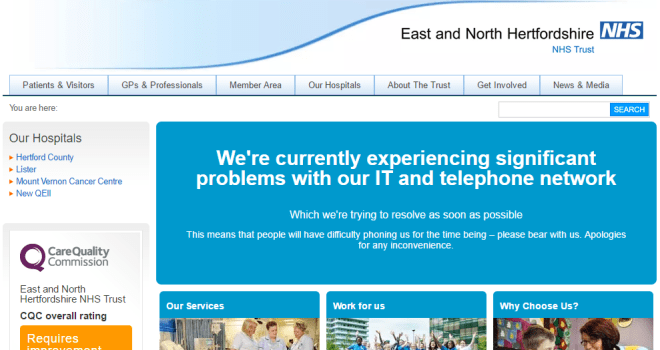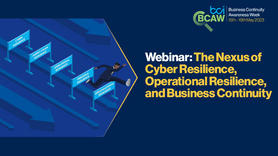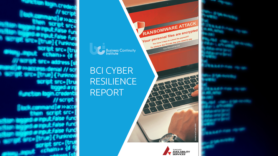Business continuity is what will pull your business through during a cyber attack

Despite the Wanna Decryptor ransomware attack affecting a reported 200,000 systems across over 150 countries, and despite the tales of disaster we are reading about in the media, the encouraging news from many organizations is that their business continuity process is preventing a disruption from turning into a crisis.
As a result of this latest attack, organizations across the world, including many NHS Trusts in the UK, have been invoking their business continuity procedures, ensuring that the priority activities are carried out, an appropriate level of service is provided to customers and any damage to reputation is limited.
“With a major incident now declared by NHS England, it is evident just how disruptive cyber attacks such as ransomware can be,” said David Thorp, Executive Director of the BCI. “Organizations must have mechanisms in place so they are prepared to deal with the consequences of a cyber security incident, or in fact any other type of incident, and can continue as near ‘normal’ operation as possible, while maintaining the confidence of their stakeholders.”
The modern business environment is heavily reliant on IT systems, and although these systems provide many benefits, they also have their pitfalls, which stem from this reliance. Research conducted by the Business Continuity Institute presents the inevitability of an attack with the Cyber Resilience Report showing that two-thirds of organizations had experienced an incident during the previous year, and 10% had experienced at least ten.
The dramatic effects of an attack such as last Friday’s should not be underestimated, yet organizations, such as the NHS, have managed to keep operating under attack. All Trusts are required to have in place an effective business continuity plan, and it is testament to the effectiveness of this planning that disruption has not been more severe.
All businesses can develop similar levels of resilience. It is business continuity that makes an immediate difference during any kind of emergency, crisis or disruption. It is what makes an organization resilient, ready to respond and carry on, even amid difficult circumstances. Yet business continuity cannot be improvised. It requires specialised and trained staff as well as the support of everyone within an organization – from executive management to junior staff.
David Thorp added: “The BCI has a range of free resources, via our website, that can be accessed by businesses and other organizations that need to avoid damaging disruptions to their activities. If prevention fails it is essential that smooth operations are maintained.”





































